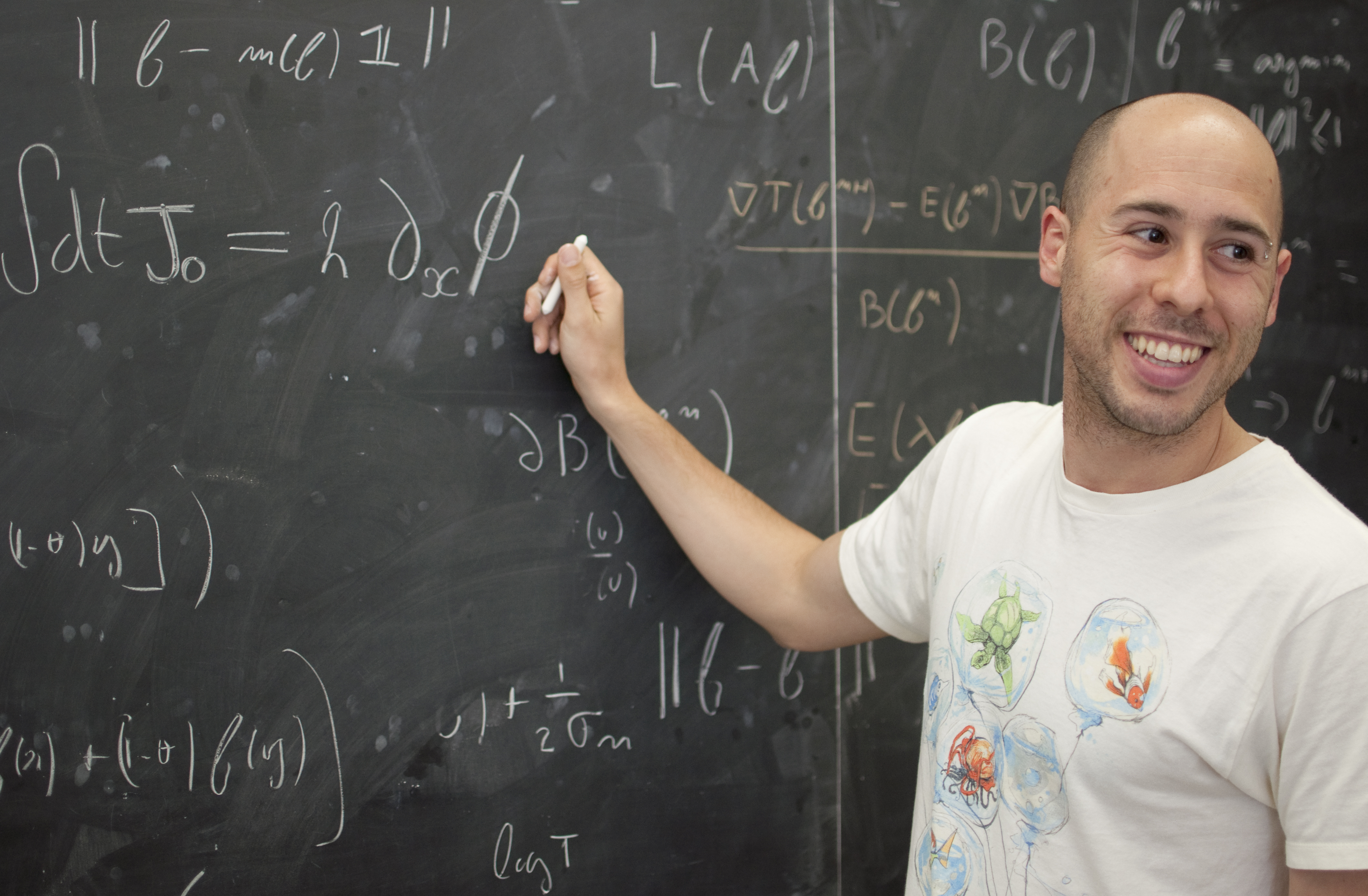Not by the book: Guerilla Science cofounder Mark Rosin teaches concepts in unexpected ways at music festivals

Mark Rosin, a researcher in the UCLA Department of Mathematics, cofounded Guerilla Science, which seeks to introduce science in unexpected places. The organization tries to prove that science is a part of everyday life and that people should think about and question it.
By Melissa Truong
April 25, 2012 1:17 a.m.

GUERILLA SCIENCE
Rosin dresses up as a banana to advertise Guerilla Science. Music festival attendees are part of the organization’s target audience.
During his day job as a postdoctoral researcher in UCLA’s Department of Mathematics, Mark Rosin sits in his sparsely furnished office, getting up to jot down algorithms on his chalkboard and meeting with faculty, staff and graduate students.
In his spare time in the summer, Rosin can be found wandering the grounds of music festivals in the United Kingdom, clad in a vibrant yellow banana costume. The costume helps advertise Guerilla Science, a science outreach program Rosin founded with two other people that seeks to blur the line between art and science.
The organization introduces science concepts in unexpected places, such as in an anatomy drawing class.
It even brings engaging science demonstrations to summer music festivals in and around London, Rosin said.
Guerilla Science targets weekend-long music festivals, similar to the Coachella Valley Music and Arts Annual Festival in the United States, because of the specific audience that attends the festivals. This audience is open-minded and more willing to immerse itself in the experience. Rosin said.
The program began with public lectures at music festivals in the United Kingdom in 2007.
Now, the program puts on large-scale productions that have been attended by about 11,000 people in total, said Zoe Cormier, one of the directors of Guerilla Science.
The guerilla scientists once staged a beat-boxing battle between two artists where their vitals were displayed on a screen visible to the audience. As the battle became more intense, medical doctors and researchers were on hand to explain the physiology of stress, showing how stressful situations affect heart and sweat rates.
Unlike most science outreach programs, Guerilla Science does not aim to inspire a new generation of scientists and promote science in general, Cormier said. Instead, the organization tries to prove that science is a part of everyday life and that people should be empowered to think about it and question it, she said.
“Science has been vilified and misunderstood,” Cormier said. “We’re here to break down the barriers between the arts and sciences.”
Many of the sets are decidedly risque, exploring the biology of sex and erogenous zones, with the audience placing stickers on a drawing of a body to indicate where they like and do not like to be touched.
Rosin said one of his favorite sets to date was called Sonic Fire, which revealed the oscillating shape of sound waves produced with a line of fire reaching out from perforations in a pipe. When the flutist began to play, a contraption called a Ruben’s tube used a supply of flammable gas to show the relationship between sound waves and sound pressure.
The program has been successful in the United Kingdom, generating positive feedback and a slew of media coverage.
After Rosin moved to the United States in 2010 to work as a visiting scientist at the Lawrence Livermore National Laboratory in the Bay Area and at UCLA concurrently, he has focused his efforts on bringing the program to the U.S.
The program is relatively well-established on the East Coast. In 2011, Rosin teamed up with Olivia Koski, now the U.S. media director for the group, after Koski attended a presentation by Guerilla Science at a conference by the Science Festival Alliance.
Koski said she was drawn to the subversive and unconventional approach of the program and the playful way Guerilla Science connected people to science.
Efforts to start the program in the U.S. were slow at first, because the two had to create a network of researchers, doctors and artists from scratch, said Rosin.
Rosin worked weekends and holidays, on top of his job, to put everything together.
Guerilla Science had its first U.S. event in New York at the Escape To New York music festival last August.
His next goal is to bring Guerilla Science to the West Coast, more specifically UCLA and the Los Angeles area in general. He also wants to come up with a sustainable business model for the program, rather than relying on grant money.
Rosin said he is excited to see the program grow even more in the future. The program allows him to be creative in ways he cannot be in his day job as a researcher studying alternative energy, he said.
The positive feedback received through surveys and reactions from participants has been an added bonus.
“I feel like I’m invested in,” Rosin said. “Not in the financial sense, but that I was one of the people who started it, so I’m so pleased to see it doing so well.”


